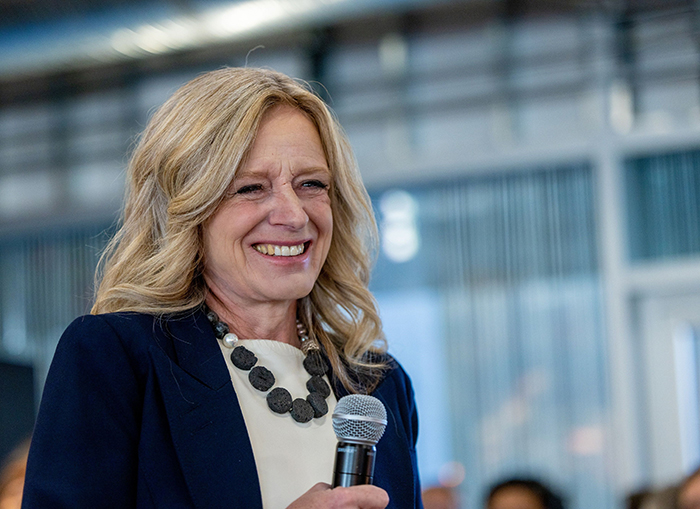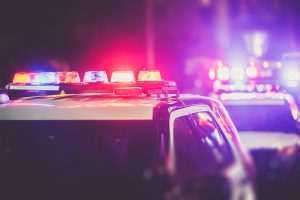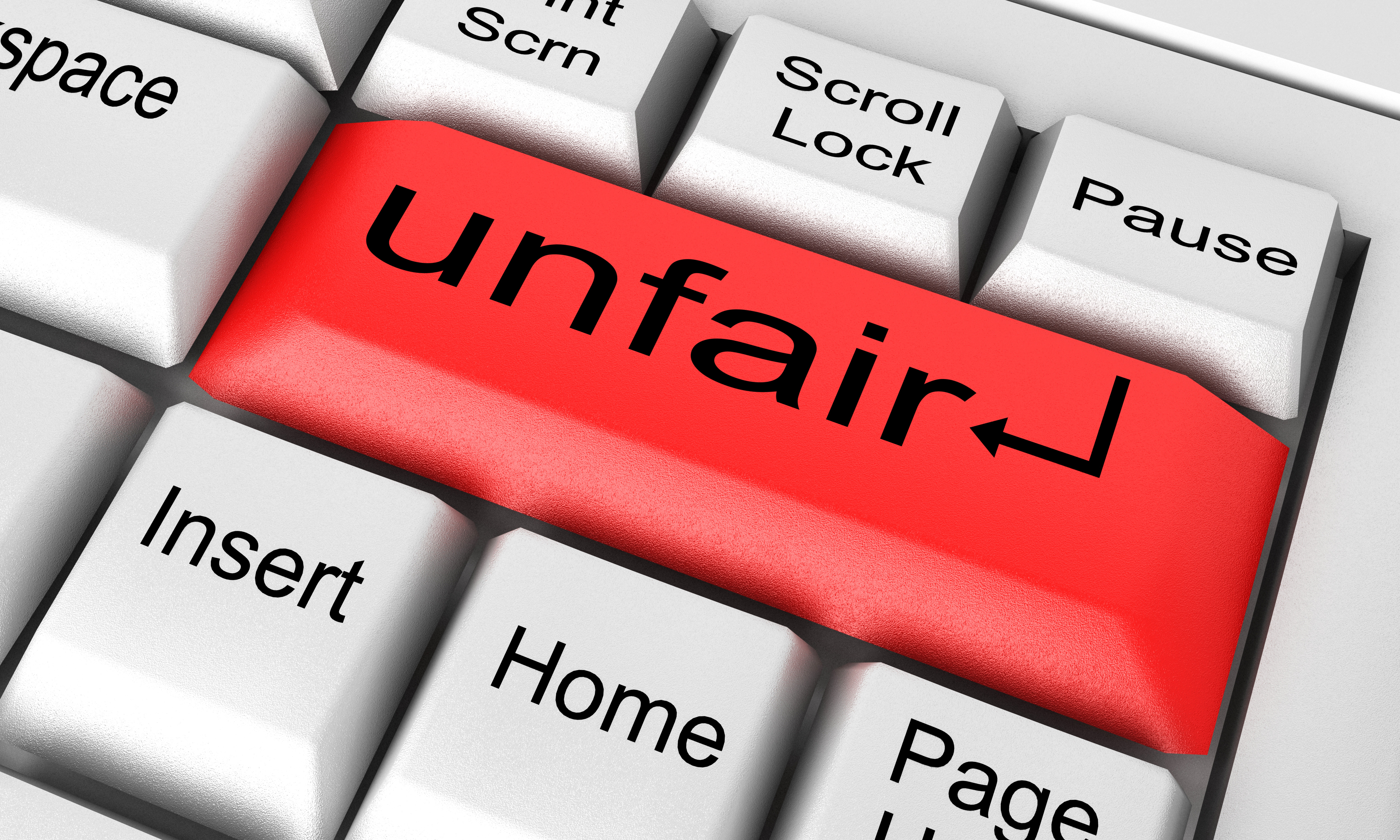Defining Rachel: caucus members speak of the leader beyond the microphone’s reach

George Lee
Local Journalism Initiative Reporter
As the clock ticks down on her leadership, supporters of Rachel Notley speak of a devotion to diversity and inclusion, her relentless opposition to the governing UCP’s agenda, and the life she’s breathed into Alberta’s political dynamic.
But the history books should also record the warmth Notley demonstrates away from the microphone, say several caucus members elected in the NDP’s 2023 resurgence.
“For me, Rachel’s legacy is one of caring,” said Brooks Arcand-Paul, who decided to return to Alberta from Ontario in part because of Notley and the NDP.
“She cares deeply about this province. She cares about her family, she cares about her team, she cares about the environment,” said Arcand-Paul, the member for Edmonton-West Henday and the NDP’s Indigenous relations and reconciliation critic.
“She embodies the principles that I was raised on, in Cree law and Indigenous tradition, about caring about other folks.”
Arcand-Paul, a graduate of the University of Ottawa law school, had been offered a job with the Ontario attorney general during Notley’s premiership. “But I saw an Alberta that was inclusive and welcoming, and I wanted to be a part of that energy.”
He added: “All nations in Alberta benefitted from our government at the time, and I was really heartened to see that work.”
Lizette Tejada, the representative for Calgary-Klein, spoke of Notley’s enthusiasm for people and their cultures in a variety of settings, and her willingness to interact.
“When I think of snapshots of her, I think of pride parades and cultural events, and of her actual joy being there,” said Tejada, the NDP critic for anti-racism, diversity and two-spirit-LGBTQ-plus issues.
Tejada’s mother, an immigrant from El Salvador, once cleaned washrooms at a Greyhound station a few blocks from the legislature. She would “bump trays with MLAs” when she went to the building’s cafeteria for lunch.
“But no one ever really asked her what she thought would make a better Alberta or how they could make her life better.”
The situation would have been different had Notley been carrying one of those trays, she believes. “It’s just being down-to-earth, I guess.”
That can be tricky terrain for social democrats in a province with a largely conservative bent.
Notley, the longest serving member in the current legislative assembly, admitted in a Local Journalism Initiative interview that acting from the left has been a delicate balancing act. But her party need not abandon its social democratic ideals, she maintained, pointing to services like seniors’ and health care.
“How we come together is a fundamental part of what being a New Democrat is, you know. Sharing the burden and working together for something that’s better.”
The 60-year-old leader continued: “As a party we need to be talking to regular folks. We need to be thinking about what keeps people up at night. We need to be thinking about how we can create more opportunities, not less, for our kids and our kids’ kids.”
Hearing and responding to Albertans is critical to the party’s future, Notley said.
“You can’t succumb to mob rule. But you know, nine times out of 10, what folks are telling you is something that’s really important for you to hear,” said Notley. “You need to be able to go into any room and make the case for the decisions that you’re taking and hopefully inspire people to care about those decisions.”
A lawyer with career roots in labour law and non-elected government, Notley was first chosen in 2008 by voters in the NDP stronghold of Edmonton-Strathcona. The daughter of a past leader of the party, the late Grant Notley, she continued in his footsteps in 2014 when she won the leadership election to replace a resigning Brian Mason.
Then came the history-making.
In the general election of May 5, 2015, Notley and her party capitalized on voter discontent with the ruling Progressive Conservatives under former premier Alison Redford. The NDP rocketed to power with a seat count of 54, up from just four in 2012. Redford’s successor, the late Jim Prentice, saw his party’s seat count dwindle to nine from 63.
Albertans who live beyond the two major centres had tipped the scales in the NDP’s favour by electing 20 of the party’s candidates.
But Notley government’s agenda wasn’t universally popular, especially in those rural areas that had made the difference.
Among items on Notley’s resumé for the NDP’s only term as the governing party are development of a climate change strategy and an increase to Alberta’s minimum wage. Notley helped unblock progress on the Trans Mountain Pipeline, and she earned kudos for working across party lines in her handling of the Fort McMurray wildfire emergency.
Notley raised the ire of many farming Albertans for making Occupational Health and Safety rules mandatory for their workers. The UCP has since added an exemption for farms with five or fewer full-time employees, and also removed her government’s carbon tax and decreased corporate income taxes.
The NDP dropped to 24 seats in 2019 when a reconstituted right under Jason Kenney’s United Conservatives surged to power by electing 63 members. Notley’s grip on ridings beyond Edmonton and Calgary loosened to just two seats.
The party came back strong last year to form the largest opposition in provincial history, while falling short of the 49 seats that went to Danielle Smith’s UCP. Victories in ridings beyond Calgary and Edmonton improved – but to just four – as the NDP rebounded to 38 seats.
Notley said that capitalizing on the party’s gains in 2015 and 2023 requires work. “I think we have to be driven to engage in that sort of door-to-door politics where we’re reaching out to Albertans, not just during the election but between elections, and where our elected officials understand that that’s the most important job they can do: get out there and talk to their constituents.
“Not just people at community events, but on people’s doorsteps, where they live. So they’re always hearing about what’s top-of-mind for folks.”
The 2023 rebound didn’t convince Notley to stay on as leader. She announced on Jan. 16 that she’ll step down after party members replace her, without saying whether she’ll continue as the member for Edmonton-Strathcona.
She told the Local Journalism Initiative that “it’s an incredible honour” to represent the people of Edmonton-Strathcona, labeling her riding “the best place in Alberta to live.”
But she wouldn’t reveal any post-leadership plans. “I know there will be next steps. I’m just still working on what ones I’ll choose.”
Her January announcement triggered a contest that will see a new leader emerge from a five-candidate field on June 22. Notley said at the time that a desire to shepherd MLAs into their roles was one reason she hadn’t made the announcement earlier.
Arcand-Paul, a two-spirit Indigenous lawyer who grew up on Alexander First Nation near Edmonton, appreciated and noticed the effort. He said the right tone was set at the swearing-in ceremony for NDP MLAs.
“To see everyone speak in their languages, to continue to see them in the house speak in their languages, is really the most beautiful thing. To be quite frank, getting to say my oath in Cree, in principles of Cree values, in Cree law – because language is part of our law – in front of our leader, in front of the lieutenant governor of Alberta, was such an honour.”
Arcand-Paul mentioned a pipe ceremony, prayers and the attendance of elders at the swearing-in. Notley also reached across the aisle “to our brother Scott Sinclair from the UCP to join us,” which paved the way for Sinclair to have the Grand Chief of Treaty 6 at his own swearing-in the next day.
(Sinclair, who represents Lesser Slave Lake, is an Indigenous small business owner who serves as parliamentary secretary for Indigenous policing.)
“That’s an important moment in Alberta’s history.”
Rhiannon Hoyle, the NDP member for Edmonton-South, said being elected to the legislature was a natural step in her leadership journey. “I spent my whole life working towards this moment, now that I look back on it,” says Hoyle, the advanced education critic and the first Black woman elected to the legislature.
Rhiannon Hoyle, the member for Edmonton-South and the critic for advanced education, stands with Rachel Notley at the site of a proposed hospital Edmonton. The hospital did not receive funding in the 2024 provincial budget.
Born in Trinidad and Tobago, Hoyle had served as a president of the Alberta Party. She ran for election to Edmonton city council and volunteered with the Edmonton Federation of Community Leagues.
Although her profile already extended beyond her community, the “key reason” the transition went so well was Notley’s leadership, Hoyle said.
“One of the things I’m so grateful for is the way she pulled us together as a caucus but also as a team with all the staff.”
Notley dedicated the first few months after the election to making sure new MLAs understood “the dynamics within the legislative assembly and all the components that bring everything together,” Hoyle said.
The party leader led a three-hour meeting, going through the history of the NDP and “making sure that we were all really aligned, that we were clear, that we had all the knowledge needed.”
One result is “a beautifully connected” caucus, said Hoyle. “I’m proud of every single colleague and really friend of mine in this caucus and how we work together and within the entire team.”
Things were less smooth back in 2015, during a government-forming process the party has likened to building an airplane in flight.
Named on the passenger manifest was Joe Ceci, who had just become the first MLA elected for the NDP in a Calgary riding since 1993. A former city alderman and today the arts and culture critic in the legislature, he was the finance minister and Alberta Treasury Board president under Notley.
Notley was busy. So was Ceci. And both struggled to find one-on-one time.
“I don’t know how it happened, who pitched it. But one of us must have said if we want time with each other, why don’t we get together each morning and we’ll run for an hour?
“I thought, well, that’s a good idea. That’s a good trick,” said Ceci, whose riding is now named Calgary-Buffalo.
Ceci was already a runner. “But I got a lot better when I had to keep up with Rachel.”
Their tradition continues. “You do 10 kilometres together and then you’re done, and then you go on to the rest of your day.”
Run or no run, Notley’s days are not always perfect.
Said Arcand-Paul: “She’s human, she has bad days. We all do.” Sometimes that spills over into things said to caucus members.
“But at the end of the day, she’ll come back and tell you that was unfair of her. That amount of emotional intelligence is something that not all leaders have.”
Notley responded: “Folks need to see themselves in their leaders. And I think that, with a couple of notable exceptions in world politics, people respond to people that they can trust.”
People have a “natural instinct” to give people second chances, but it takes honesty to earn that treatment.
Speaking about politics and public discourse everywhere, she said: “I do worry sometimes that that particular feature seems to be a little bit less common than it was.”
Ceci said Notley and the party have changed the face of politics in the province – in a literal way. He pointed to gender balance and the diverse identities and backgrounds represented in the NDP caucus.
“People have a choice now. And she and the party have been steadfast in that choice being reflective of Alberta,” he said.
Arcand-Paul concurred: “Rachel is the reason why we’re all here today. And I’m not just saying that because we are candidates that ran under her. I’m saying that because that is how our party grew.”
Calling the diversity in caucus amazing, he said: “Our party grew because she shows empathy, because she shows inclusivity, because she cares about the importance of having these voices at the table and elevating them to ensure that their communities are well represented.
“We know that we can’t speak for our entire community, but it’s a start.”
George Lee
Local Journalism Initiative Reporter
The Macleod Gazette




